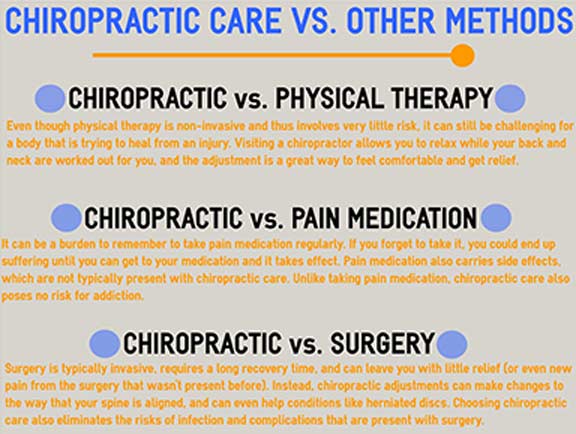Find Out The Reality About Chiropractic Care Adjustments And Their Threat Of Dependency-- Learn What The Science Discloses And Its Ramifications For Your Wellness
Find Out The Reality About Chiropractic Care Adjustments And Their Threat Of Dependency-- Learn What The Science Discloses And Its Ramifications For Your Wellness
Blog Article
Material Composed By-Klint Gormsen
You might have heard that chiropractic adjustments can result in an addictive dependence, but that's a common false impression. Numerous people find relief without establishing any kind of dependency. webster technique chiropractor is essential to understand truth objective of these changes and exactly how they fit into your overall wellness approach. So, just what does the science say concerning chiropractic care and your wellness? Let's check out the facts.
Recognizing Chiropractic Care Adjustments and Their Objective
When you think about chiropractic adjustments, it's vital to understand their purpose and how they function. These changes intend to fix imbalances in your spine and joints, promoting far better alignment and motion. By using remedies for lower back pain to specific areas, chiropractors assist relieve pain, boost feature, and enhance your total wellness.
Chiropractic care focuses on your body's capability to heal itself, stressing the link between the spine and the nervous system. When pregnancy chiropractor near me is aligned, it can lower nerve interference, enabling your body to operate ideally.
Normal changes may also assist protect against future issues, keeping you active and pain-free. Inevitably, https://caidenlgato.blogadvize.com/43275116/the-devices-of-chiropractic-care-adjustments-fostering-health-and-wellness-and-health serve to support your wellness, enhance mobility, and enhance your quality of life.
Common Myths About Addiction and Chiropractic Care
Many people hold false impressions regarding the connection between chiropractic care and dependency therapy. One typical misconception is that chiropractic care changes produce an addiction-like dependency. Actually, several people find relief from discomfort and discomfort, but this doesn't imply they establish a mental or physical dependency.
One more misconception is that chiropractors are simply trying to maintain you coming back for more adjustments. Most chiropractors prioritize your well-being and go for long-lasting health instead of regular check outs.
Furthermore, some think chiropractic treatment can replace standard dependency treatments, yet it should complement, not substitute, evidence-based therapies. Recognizing these misconceptions can help you make educated choices about your health and wellness without dropping prey to misinformation.
The Science Behind Chiropractic Care Adjustments and Person Experience
While some may question the effectiveness of chiropractic adjustments, a growing body of research study supports their duty in alleviating pain and boosting general function.
Researches indicate that back adjustment can minimize pain from conditions like reduced pain in the back, stress migraines, and neck pain. When you undertake chiropractic care, the changes aim to recover correct alignment, enhancing your body's all-natural healing capabilities.
Several people report raised flexibility and a greater sense of well-being after therapy. In addition, the healing relationship you build with your chiropractor can enhance your experience, as they supply personalized care customized to your requirements.
This mix of scientific backing and positive patient experiences aids make clear why chiropractic adjustments work for lots of people seeking alleviation.
Conclusion
Finally, chiropractic care adjustments aren't addicting; they're developed to boost your well-being and advertise aggressive health maintenance. By exposing the misconceptions surrounding dependency, it's clear that these therapies can offer considerable alleviation without developing a cycle of dependency. Embracing chiropractic care as a complementary approach to traditional therapies can cause much better health outcomes. So, if you're thinking about changes, rest assured that they're about enhancing your quality of life, not creating a dependence.
